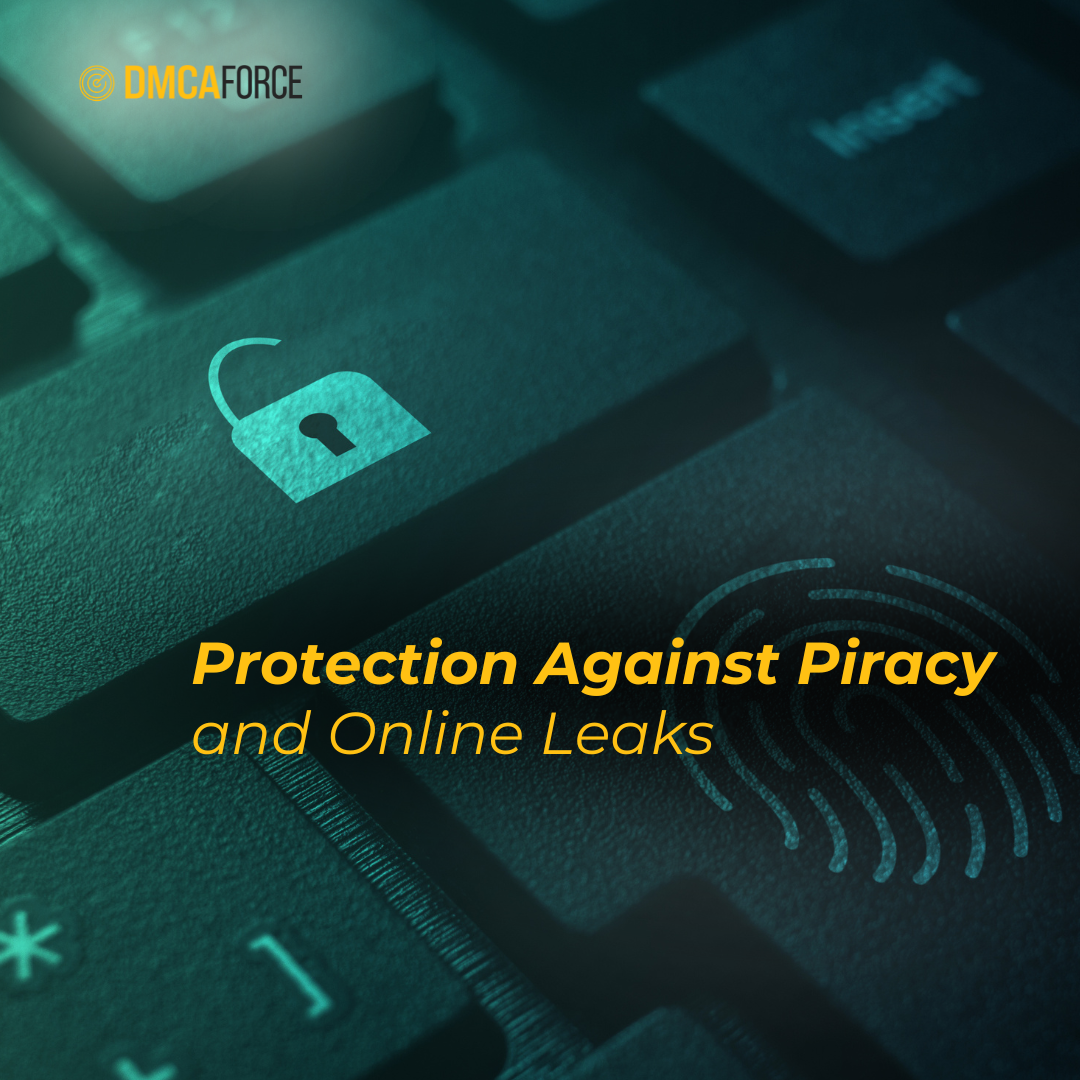News

How DMCA Force Helps Stop Music Piracy
The Digital Millennium Copyright Act (DMCA) Force is a powerful tool in the fight against music piracy. Music piracy, which is the unauthorized copying, distribution, or downloading of copyrighted music, has been a major problem for the music industry for decades. The DMCA Force helps to combat this issue by providing a framework for copyright holders to protect their intellectual property.
Here’s how it works: when a copyright holder discovers that their music is being shared or downloaded without permission, they can send a takedown notice to the website or platform hosting the infringing content. This notice must include specific information about the copyrighted work and the location of the infringing material. The website or platform then has a certain amount of time to remove the infringing content or face legal consequences.
The DMCA Force also provides a safe harbor provision for websites and platforms that comply with takedown notices in good faith. This means that if a website takes down infringing content after receiving a valid takedown notice, they are protected from liability for copyright infringement.
The DMCA Force has been instrumental in helping to reduce music piracy online. By providing a clear process for copyright holders to protect their rights, it has made it easier for them to take action against infringers. At the same time, it has also encouraged websites and platforms to take responsibility for policing their own content and removing infringing material.
As a result, many popular music streaming services and social media platforms have implemented robust systems for detecting and removing copyrighted content without permission. This has helped to reduce the availability of pirated music online and has given artists and creators more control over how their work is shared.
How does DMCA protect?
The Digital Millennium Copyright Act (DMCA) protects copyright holders by providing a legal framework for them to defend their intellectual property rights. Here’s how it works:
The DMCA allows copyright holders to send a takedown notice to websites, internet service providers, or other online platforms that are hosting or facilitating the distribution of copyrighted material without permission. This notice must include specific information about the copyrighted work, the location of the infringing material, and a statement that the copyright holder has a good faith belief that the use is not authorized.
Once a takedown notice is received, the website or platform has a certain amount of time to remove or disable access to the infringing material. If they comply with the notice, they are protected from liability for copyright infringement. This means that they won’t be sued for hosting or facilitating the distribution of copyrighted material without permission.
The DMCA also provides a counter-notice process for individuals who believe their content was removed in error. If someone receives a takedown notice and believes their use of the copyrighted material is fair use or otherwise permitted by law, they can send a counter-notice to the website or platform explaining why they think their content should be reinstated.
The DMCA also criminalizes certain types of copyright infringement, such as willful infringement for commercial gain. This means that individuals who intentionally infringe on copyrights for financial gain can face fines and even imprisonment.
Does DMCA apply to music?
Yes, the Digital Millennium Copyright Act (DMCA) applies to music. In fact, the music industry has been one of the most active users of the DMCA’s takedown notice process to combat online piracy.
The DMCA protects copyrighted music by making it illegal to distribute or share copyrighted music without permission from the copyright holder. This includes downloading or uploading copyrighted music files without permission, as well as streaming or hosting copyrighted music on websites or platforms without a license.
Music copyright holders, such as record labels and publishers, can use the DMCA to send takedown notices to websites, internet service providers, and other online platforms that are hosting or facilitating the distribution of their copyrighted music without permission. This can include peer-to-peer file-sharing networks, torrent sites, and streaming platforms that don’t have licenses to host copyrighted music.
When a takedown notice is received, the website or platform must remove or disable access to the infringing material within a certain amount of time. If they comply with the notice, they are protected from liability for copyright infringement.
The DMCA also applies to user-generated content platforms like YouTube and SoundCloud. These platforms have implemented systems to detect and remove copyrighted music from user-uploaded content. If a user uploads a video or audio file that contains copyrighted music without permission, the platform may remove the content or mute the audio track.
In addition, some online services like Spotify and Apple Music have licenses with major record labels and publishers to stream their catalogs legally. These services use digital fingerprinting technology to identify and block uploads of copyrighted music that don’t have proper licenses.
How effective is DMCA?
The Digital Millennium Copyright Act (DMCA) is a law in the United States that aims to protect digital content creators from copyright infringement. It was passed in 1998 and has been a crucial tool for artists, writers, musicians, and other creators to safeguard their work from being stolen or used without permission.
The DMCA is effective in several ways. Firstly, it makes it illegal for anyone to circumvent technological measures that control access to copyrighted material. This means that if someone tries to break through encryption or other security measures to access copyrighted content, they can be held liable.
Secondly, the DMCA provides a process for copyright holders to request that online service providers remove infringing material from their platforms. This is known as a “takedown notice.” When a copyright holder sends a takedown notice, the service provider must remove the infringing material within a certain timeframe or face legal consequences.
The DMCA also provides “safe harbor” provisions for online service providers. This means that as long as they follow certain procedures and respond promptly to takedown notices, they are not liable for infringing material posted by their users.
Despite its effectiveness, the DMCA has its limitations. One major criticism is that it can be abused by copyright holders who send false or overly broad takedown notices. This can lead to legitimate content being removed from platforms and stifling free speech.
Another issue is that the DMCA only applies within the United States. With the internet being a global platform, this means that infringing material can still be accessed from outside the country.
In recent years, there have been efforts to reform the DMCA to address these issues. For example, some propose making it easier for users to counter-notice when they believe their content was wrongly removed. Others suggest increasing penalties for false takedown notices.
What are the benefits of the DMCA?
The Digital Millennium Copyright Act (DMCA) has several benefits that have helped to protect the rights of creators and promote a safe and legal online environment. One of the main benefits is that it provides a clear process for copyright holders to report and remove infringing material from online platforms. This helps to prevent the spread of pirated content and ensures that creators can maintain control over their work.
Another benefit is that the DMCA provides a safe harbor for online service providers, such as social media platforms and websites. This means that as long as they follow certain procedures, they are not liable for infringing material posted by their users. This has encouraged the growth of online platforms, which has led to new opportunities for creators to share their work and connect with audiences.
The DMCA also helps to protect consumers by ensuring that they have access to legitimate sources of digital content. By reducing the availability of pirated material, consumers are more likely to purchase or access content through legal channels, which supports the creative industries.
Furthermore, the DMCA has helped to promote innovation and creativity by providing a framework for creators to share and build upon each other’s work. By establishing clear rules around copyright infringement, creators can collaborate with confidence, knowing that their rights are protected.
What is the DMCA law for music?
The Digital Millennium Copyright Act (DMCA) is a law that protects music creators from copyright infringement in the digital age. In the music industry, the DMCA provides a framework for artists, songwriters, and record labels to control how their music is used and shared online.
Under the DMCA, music creators have the right to decide how their work is distributed and used. This means that they can choose to share their music on certain platforms, such as streaming services or social media, while restricting its use on others.
One of the key provisions of the DMCA for music is the “notice and takedown” process. This means that if a copyright holder finds their music being used without permission on a website or platform, they can send a notice to the service provider requesting that it be removed. The service provider must then take down the infringing material within a certain timeframe or face legal consequences.
The DMCA also makes it illegal for anyone to circumvent technological measures that control access to copyrighted music. This includes using software or devices to bypass digital rights management (DRM) systems that protect music files.
How to Protect Your OnlyFans Content from Online Leaks and Piracy
November 15, 2024

Protect Your Content on Telegram: Using DMCA Claims to Combat Piracy
November 13, 2024

Unlock Your Revenue Potential at the AW Summit 2024 in Bucharest!
September 10, 2024
Got questions about protecting your digital assets from copyright infringement?


